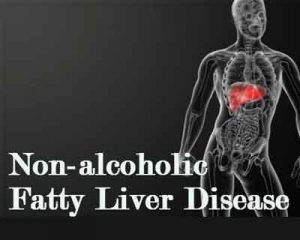- Home
- Editorial
- News
- Practice Guidelines
- Anesthesiology Guidelines
- Cancer Guidelines
- Cardiac Sciences Guidelines
- Critical Care Guidelines
- Dentistry Guidelines
- Dermatology Guidelines
- Diabetes and Endo Guidelines
- Diagnostics Guidelines
- ENT Guidelines
- Featured Practice Guidelines
- Gastroenterology Guidelines
- Geriatrics Guidelines
- Medicine Guidelines
- Nephrology Guidelines
- Neurosciences Guidelines
- Obs and Gynae Guidelines
- Ophthalmology Guidelines
- Orthopaedics Guidelines
- Paediatrics Guidelines
- Psychiatry Guidelines
- Pulmonology Guidelines
- Radiology Guidelines
- Surgery Guidelines
- Urology Guidelines
Non-alcoholic fatty liver disease increases risk of atrial fibrillation in adults

ITALY: Patients with non‐alcoholic fatty liver disease (NAFLD) are at increased risk of atrial fibrillation (AF) -- abnormal heart rhythm, according to a recent study published in the journal Liver International. The risk is more defined for middle-aged and elderly individuals with type 2 diabetes.
Recent studies examined the association between non-alcoholic fatty liver disease (NAFLD) and risk of atrial fibrillation (AF) in adults, but the findings have been inconsistent. Giovanni Targher, University and Azienda Ospedaliera Universitaria Integrata, Verona, Italy, and colleagues conducted the meta-analysis to provide a quantitative estimate of the magnitude of the association between NAFLD and risk of AF.
For the purpose, the researchers searched publication databases using predefined keywords to observational studies (published up to December 14, 2018), in which NAFLD was diagnosed by biopsy, imaging or biochemistry, and AF was diagnosed by medical history and electrocardiograms. Data from selected studies were extracted and meta-analysis was performed using random-effects modeling. The final analysis involved nine cross-sectional and longitudinal studies consisting of 364 919 individuals.
Also Read: Management of Non-alcoholic fatty liver disease: NICE Guidelines
Key findings of the study include:
- A meta-analysis of data from 5 cross‐sectional studies showed that NAFLD was associated with an increased risk of prevalent AF, independent of age, sex, body mass index, hypertension, and other common AF risk factors.
- This risk was particularly high among patients with established diabetes.
- A meta-analysis of data from 4 longitudinal studies showed that NAFLD was independently associated with a 10‐year increased risk of incident AF only in type 2 diabetic patients.
- Sensitivity analyses did not modify these findings. Funnel plots did not reveal significant publication bias.
"NAFLD is associated with an increased risk of AF in middle-aged and elderly individuals (especially in those with type 2 diabetes). However, the observational design of the eligible studies does not allow for proving causality," concluded the authors.
For detailed study log on to https://doi.org/10.1111/liv.14044

Disclaimer: This site is primarily intended for healthcare professionals. Any content/information on this website does not replace the advice of medical and/or health professionals and should not be construed as medical/diagnostic advice/endorsement or prescription. Use of this site is subject to our terms of use, privacy policy, advertisement policy. © 2020 Minerva Medical Treatment Pvt Ltd